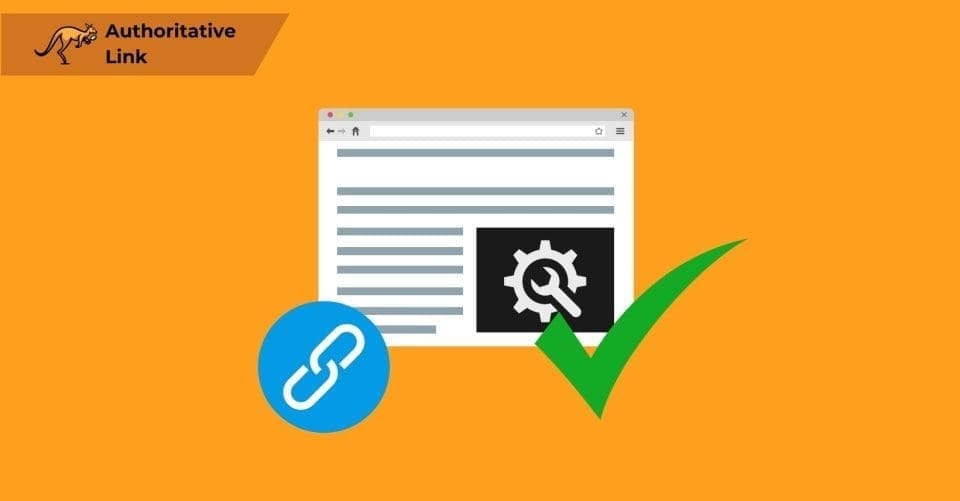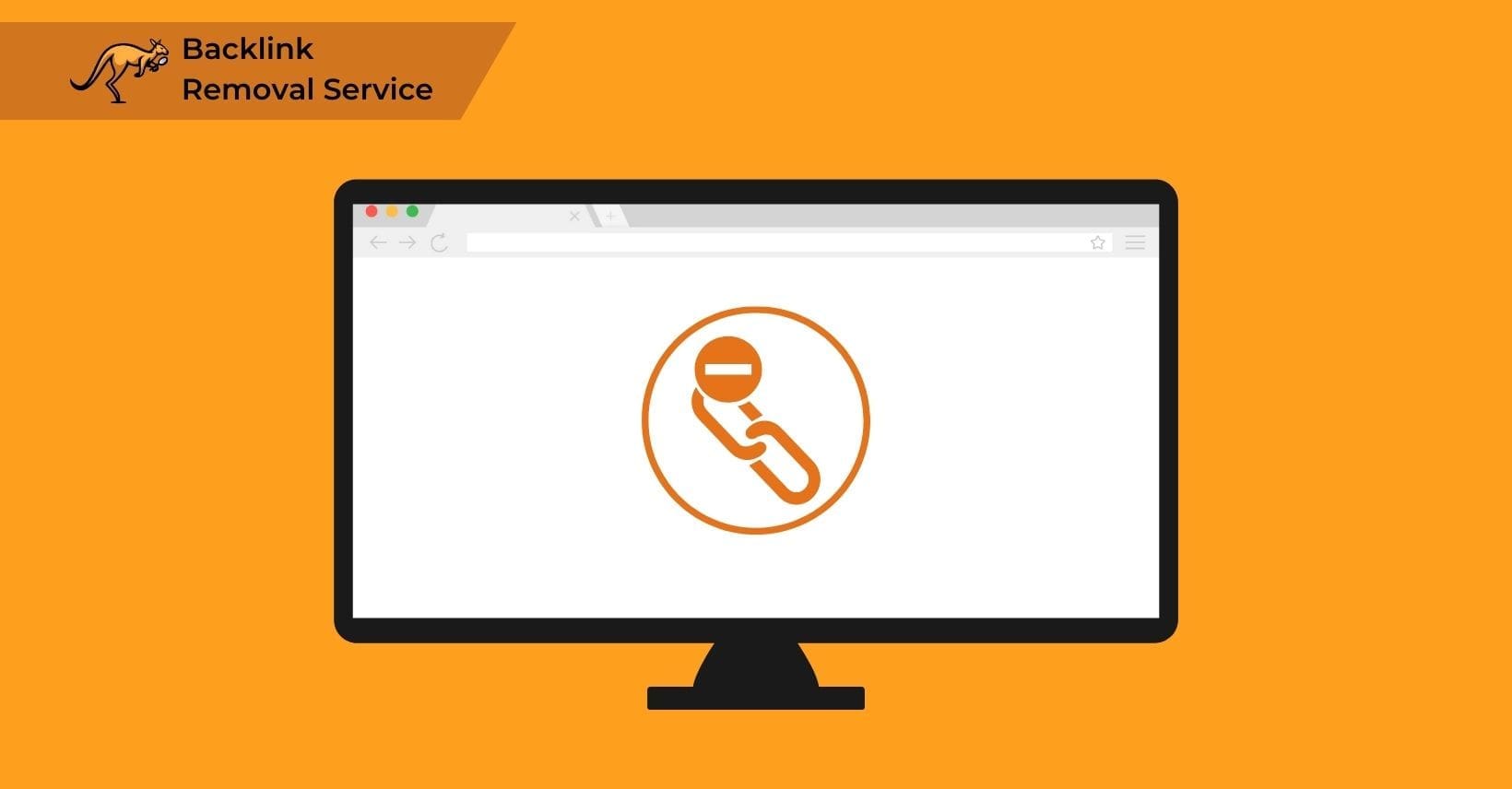Website authority matters for search engine optimization (SEO). It sets high-quality sites apart from others. Authoritative links boost your link-building efforts more effectively than links from less authoritative websites. But how does this work?
Domain authority is complex and often understood only by SEO experts. We aim to clear up the confusion with our industry expertise on authoritative backlinks.
What distinguishes high-authority websites from low-quality ones? What makes a site authoritative? How can you obtain links from sites with high domain authority?
We will explore these questions below and demonstrate how authoritative inbound links benefit any site owner.
Understanding these factors is key to unlocking the power and significance of authoritative links.
Authoritative Links: What Are They?
Authoritative links differ from regular backlinks through their origin quality and impact on rankings, whereas standard backlinks may come from websites with varying levels of credibility. Shady links from dubious sites won’t boost your ranking much. In contrast, a high-quality inbound link from a reputable website can significantly impact your ranking.
Authoritative links are backlinks that come from websites with high domain authority, which search engines recognize as trustworthy and influential sources within their respective niches. To fully grasp this, knowing what characteristics define an authoritative website and why they matter so much for effective SEO is essential.
What Is an Authoritative Website?

Authoritative websites are key to any link-building strategy. An authoritative site ranks high in organic search results and is seen as a credible source of information. Users trust and recognize the professionalism of an authoritative site, which enhances its reliability.
These sites back up their credibility with top-notch SEO practices, including quality links, a solid domain name, and user-friendly design. Users on these sites are highly engaged, frequently sharing content, commenting, and interacting.
Hosting valuable content on an authoritative site builds user trust, enhances user experience, and effectively captures the target audience.
Combining great SEO, quality content, high engagement, and user experience will establish your site’s authority. Authoritative outbound links gain more trust and provide greater link juice to other sites.
Similarly, authoritative sites attract more backlinks as people prefer linking to reliable sources over outdated, untrustworthy content. Becoming an authoritative source in your niche is one of the best ways to earn links organically.
So, why does authority matter? Authority influences not just user trust but also your site’s overall performance.
Why Does Authority Matter?
Authoritative links boost SEO performance because they transfer authority and trust to your website, which search engines interpret as endorsements from credible sources. Whatever your company’s expertise, the top website on that subject is the one to beat for visibility on Google or Bing.
SEO methods like building a backlink portfolio and ensuring all links point to high-quality sites are essential for boosting your website’s authority. However, gaining industry knowledge and creating trustworthy material takes time and effort.
To rank well on Google, you must learn these techniques. Knowing how metrics influence your site’s standing can further enhance your strategy.
Website Authority Metrics

A link’s authority level depends on multiple factors including the linking domain’s age, relevance to your niche, overall reputation, content quality, and the site’s own backlink profile, which collectively signal trustworthiness to search engines. These metrics drive traffic and rank sites in authority.
Several third-party metrics can measure a web page’s authority. These metrics are from third parties, not Google, and may not always be accurate. Google’s algorithms change, and the weight of these metrics can shift with updates. Key metrics drive traffic and rank sites in authority.
Now, let’s look into what impacts a site’s domain authority.
Domain Authority
Website domain names indicate authority levels. Domains vary in authority: .edu, .gov, and .org often hold the highest value. Financial planning firms find final expense leads valuable for client expansion. Webmasters prioritize .edu domains for link building due to active blogs and high trust.
Be cautious with .org domains; some are scams. Use critical judgment to evaluate .org trustworthiness. .edu and .gov sites are harder to fake and hold more authority.
To maximize these benefits, let’s consider how engaging content is crucial.
Website Content
Website content quality directly influences link authority because high-quality, relevant content attracts natural backlinks from authoritative sources, which search engines interpret as votes of confidence. This isn’t just about Google’s view but user interaction. Expert writers, relevant blogs, content expertise, and user engagement make a site a popular resource.
Users link to it naturally. Authoritative content improves rankings, gaining organic links and high third-party metrics. With this foundation, we can explore another key aspect that enhances your site’s authority.
High-Quality Backlinks
A website’s backlink profile holds a crucial place in SEO. Authoritative links function as cornerstones in a comprehensive SEO strategy by establishing your website’s credibility within your industry, which search engines recognize when determining rankings. Authoritative links function as cornerstones in a comprehensive SEO strategy by establishing your website’s credibility within your industry, which search engines recognize when determining rankings. Inbound links from various sites signal to Google crawlers that your site holds authority in its niche. These quality leads boost your site’s authority and increase its chances of conversion.
Inbound links are more valuable than outbound ones, and using guest blogging can effectively build your search engine authority. Search engines view sites with authoritative inbound links as authoritative, too. Much like traffic, this authority flows from one site to another in a “link juice.”
Considering how backlinks shape authority, measuring performance through other metrics that reflect organic growth and reach is important.
Organic Metrics
Authoritative websites show high user engagement. This isn’t a search engine metric but one valued by visitors. People who find your page relevant and valuable engage with your content naturally. High user engagement indicates relevance, value, and quality.
However, if user engagement seems suspicious, the site is likely low-quality. For example, sites with many identical or spammy comments are usually poor quality. Always be cautious when assessing a page’s authority and value. But metrics can be misleading.
The Problem With These Metrics
The metrics above are good indicators of your authority, but they are not official metrics from search engines. Industry experts have developed these to figure out what makes a website authoritative. Google keeps its system for determining site or link authority a secret.
So, no one in the industry knows exactly how site authority works. Everyone makes educated guesses based on known systems.
You may consider gaining recognition from trusted sites to build your authority further.
How To Get Links From An Authoritative Site
Link building follows the same process for every site. Reach out to your target site’s webmaster and present your high-quality content. I am hoping for a link. Emailing reputable websites often yields low responses. Authoritative backlinks directly influence search rankings by passing domain authority to your website, which search engines use as a ranking signal when determining positions in search results. Even a few links from authoritative sources can significantly boost your search engine rankings. Persistence is key in link building. Create a long list of potential sites and contact each one. Despite a low hit rate, some results will eventually come.
To make this process smoother and more effective, consider how specialized assistance can enhance your strategy.
How Can Link-Building Agencies Help You Acquire Authoritative Links?
Link-building agencies secure high-quality backlinks that boost your site’s SEO. They use expertise and tools to find and get links from reputable sites, which improve your site’s credibility and visibility in search results.
By leveraging relationships with webmasters and industry influencers, they place your links on high-authority sites, driving targeted traffic and signaling search engines of your content’s value and trustworthiness. They stay updated with algorithm changes and trends, ensuring your strategy is effective and compliant.
Through detailed reporting and analysis, they show the growth of your backlink profile and its impact on your site’s performance.
Choosing the right partner can make a big difference in your link-building success, and one name stands out for many reasons.
Why Choose Searcharoo for Your Link Building Needs?
At Searcharoo, we bring expertise and a proven track record to your link-building strategy. Our seasoned SEO professionals excel at acquiring high-quality backlinks for your website and industry.
We prioritize quality over quantity, securing links from high-authority, relevant websites that enhance your SEO and boost your site’s credibility. Transparency is a cornerstone of our service; we provide detailed reports for tracking the progress and results of your link-building campaign, offering clear insights into your backlink profile’s growth and its impact on your site’s performance.
Ethical practices are central to our work. We strictly adhere to Google’s guidelines, avoiding black-hat techniques to ensure our strategies are sustainable and long-term.
Our success stories showcase improvements in our clients’ search engine rankings and organic traffic. Beyond link building, we offer a comprehensive range of SEO services, including on-page optimization, content creation, and technical SEO, providing solutions to enhance your online presence.
Choosing Searcharoo means partnering with a reliable, experienced, and ethical agency dedicated to driving sustainable growth for your website. Understanding the critical aspects of link building in SEO success reveals why authoritative links are vital.
Let’s reflect on the overall impact and the bigger picture as we move forward.
Summing Up the Power of Authoritative Links
While websites and links can be authoritative, there is no real way to determine exactly how authoritative any given link is. The best you can do is guess using the metrics outlined above.
In general, a link to your blog or website from a high-value site will drive more traffic than one from a spammy site, and that is easy to track. It is important to monitor your backlink profile constantly and where links to your sites are coming from.





